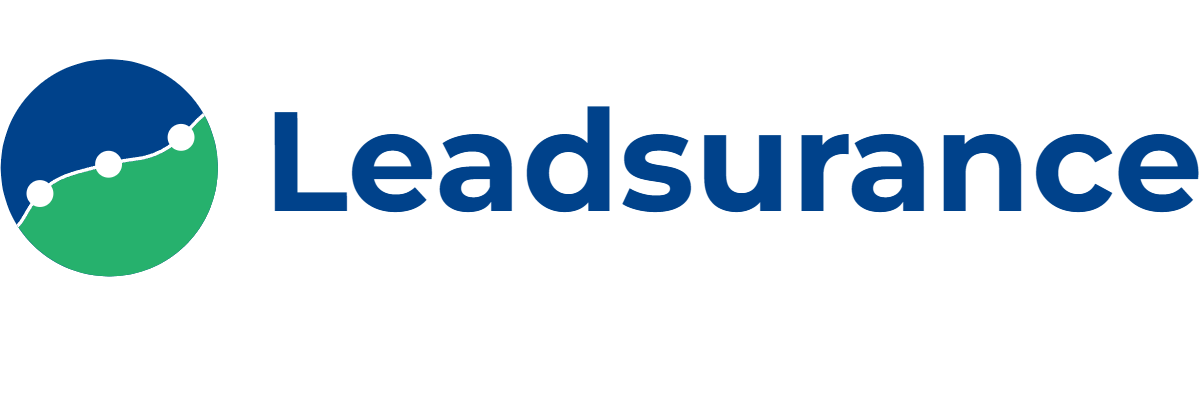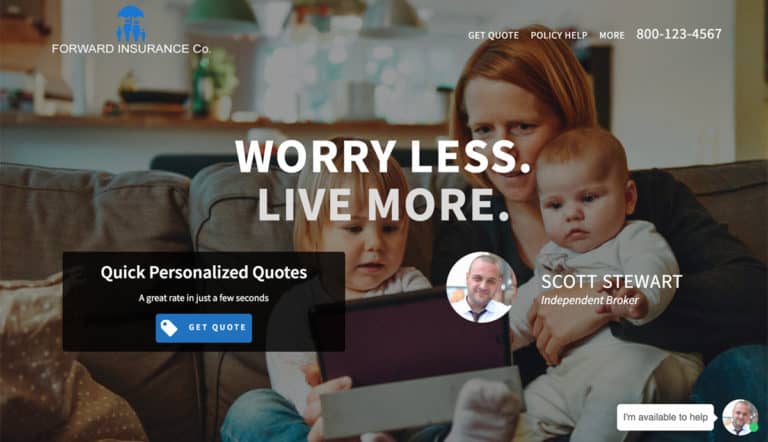As an insurance agent, you want to form as many meaningful connections with potential customers as possible. Because, ultimately, your agency’s success hinges on your ability to do this well and often.
Before someone will side with your agency over a competitor, they need to trust you. Before they will trust you, they have to know more about your agency — its reputation, benefits, agents, etc.
One of the most effective ways to put your agency in front of more people and start fostering these relationships is by making insurance ads. Specifically, video ads.
Not only is video visually engaging, but it has also helped 52% of marketers establish and build trust with their target audience.
Creating and distributing video ads on social media, TV, and other platforms can help your agency generate and convert more leads, but there’s a caveat.
If you aren’t careful, you could face hefty legal fines and repercussions when your ad is shared publicly.
To help you avoid this proactively, this guide outlines what you should know in order to create insurance ads that are legally sound and protected.
Related Reading: Guide to Facebook Ads for Life Insurance and the Best Insurance Ad Ideas
Here’s Why Your Ad Production Process Has to be Airtight
Insurance is in high demand, so many of the people that come across your insurance ads already have a purchase intent mindset. With the right marketing strategy, an insurance ad could be the final push someone needs to choose your agency.
But, as you know, these ads aren’t created overnight.
Your agency devotes a lot of time, money, and resources into planning and producing high-performing insurance ads. And after spending weeks on an ad campaign, the last thing you want is to face legal backlash once it goes live.
Maybe you used copyrighted music, footage, or other media without getting the proper licensing rights first. Or maybe you didn’t ask your talent or crew to sign contracts before production started.
Whatever the case might be, the aftermath is the same.
If your agency’s production process isn’t airtight, minor and major legal oversights can — and likely will — lead to damaged reputations and financial losses.
Fortunately, you can safeguard your agency and your insurance ads by adhering to the following video production tips.
Best Practices for Legally Protecting Your Agency’s Insurance Ads
Below are the top 3 most important best practices for making sure your insurance advertisements are compliant. Following these best practices will help ensure that your ads don’t lead to any legal issues.
1. Know the Ins-and-Outs of Video, Photo, and Music Licensing
For 81% of marketers, videos that include music outperform videos that don’t. And just about every website you visit, or online ad you view, contains stock photos and videos.
But the quickest way to land your insurance agency into legal trouble is to use music or stock photos and videos without permission.
Unless you’re producing your own music or doing your own photography and videography, you’ll need to negotiate with copyright owners before you include their content in your advertisements. Alternatively, you could license music from a stock media company.
When it comes to music licensing, there isn’t a one-size-fits-all option.
To use one copyrighted song in your insurance ads, you’ll need to secure multiple licenses (i.e., a synchronization license, master license, public performance license, etc.). These licenses give you the legal go-ahead to feature music in your ads.
If you don’t abide by music licensing protocol, odds are you’ll receive DMCA takedown notices and Content ID claims in no time at all.
When licensing stock photos and videos you will need to pay for a commercial license that allows you to use the content in advertisements.
2. Use Legal Forms When Shooting with Talent on Location
Creating an insurance ad like the one above requires a lot of pre-production planning, scheduling, and hiring.
Anytime that you involve actors and a crew in an ad campaign, you need to make sure that you have the necessary contracts prepped and ready for signatures before filming starts.
The reason?
Contracts like talent release forms give your agency documented consent that you have each actor’s permission to use their image, name, voice, and performance in your insurance ad.
This is important because, if you bypass this step, one of your actors could hypothetically file a lawsuit against your agency and prevent the ad from being distributed.
If you’re filming in public or private locations, it’s also important that you use film permits, location release forms, and crowd release notices.
That way, you have the documentation you need to prove that you’re filming everything legally.
3. Submit Cue Sheets Now, Not Later
Something that your agency shouldn’t overlook when creating insurance ads is the importance of filling out and submitting cue sheets.
Anytime that you plan on broadcasting an ad with copyrighted music on TV, it’s not enough to just secure synchronization, master, and other necessary music licenses.
You also need to submit a cue sheet to the music’s copyright owners and performing rights organizations (PROs) so that they can approve your use of their music in this ad.
Essentially, a cue sheet is a document that you fill out well before your ad airs on TV. In this document, you disclose information about your ad (i.e., when it’s airing, what music you’re using, the ad duration, the music duration, etc.).
This form is important because it allows the copyright owners and PROs to track when and how the copyrighted music is used. In turn, PROs are able to pay royalties to the composers and publishers of the music.
If you don’t submit this sheet and get approval to broadcast the music, your agency could face potential lawsuits, fines, and additional penalties.
Ultimately, a critical part of protecting your agency’s insurance ads from legal repercussions is getting permission from the right people and organizations as soon as possible.
Resources on Legal Compliance for Insurance
The following are some resources to help you understand the compliance regulations for the insurance products you sell.
Resources for online Advertising Compliance
The following are some resources to help you understand the compliance regulations for the advertisements you run online.
- Facebook Advertising Policies (View Policies)
- Google Ads Policies (View Policies)
- Google Webmaster Guidelines requiring compliance to be included in search results (View Guidelines)
- W3C Web Performance Standards and Guidelines (View Standards)
Conclusion
When it comes to legal protection for your insurance advertising campaigns, hopefully, these resources are helpful.
That being said, it is always best to consult with a lawyer regarding legal issues if you have any questions before you begin advertising.
So, learn everything you can on your own and prepare some specific questions that you may have with a lawyer. This way you only have to pay a small consultation fee for a faster more organized consultation if you do require some legal advice.
The information contained in this post and on this website is provided for informational purposes only, and should not be construed as legal advice. Please consult with your lawyer regarding legal concerns for your business.






